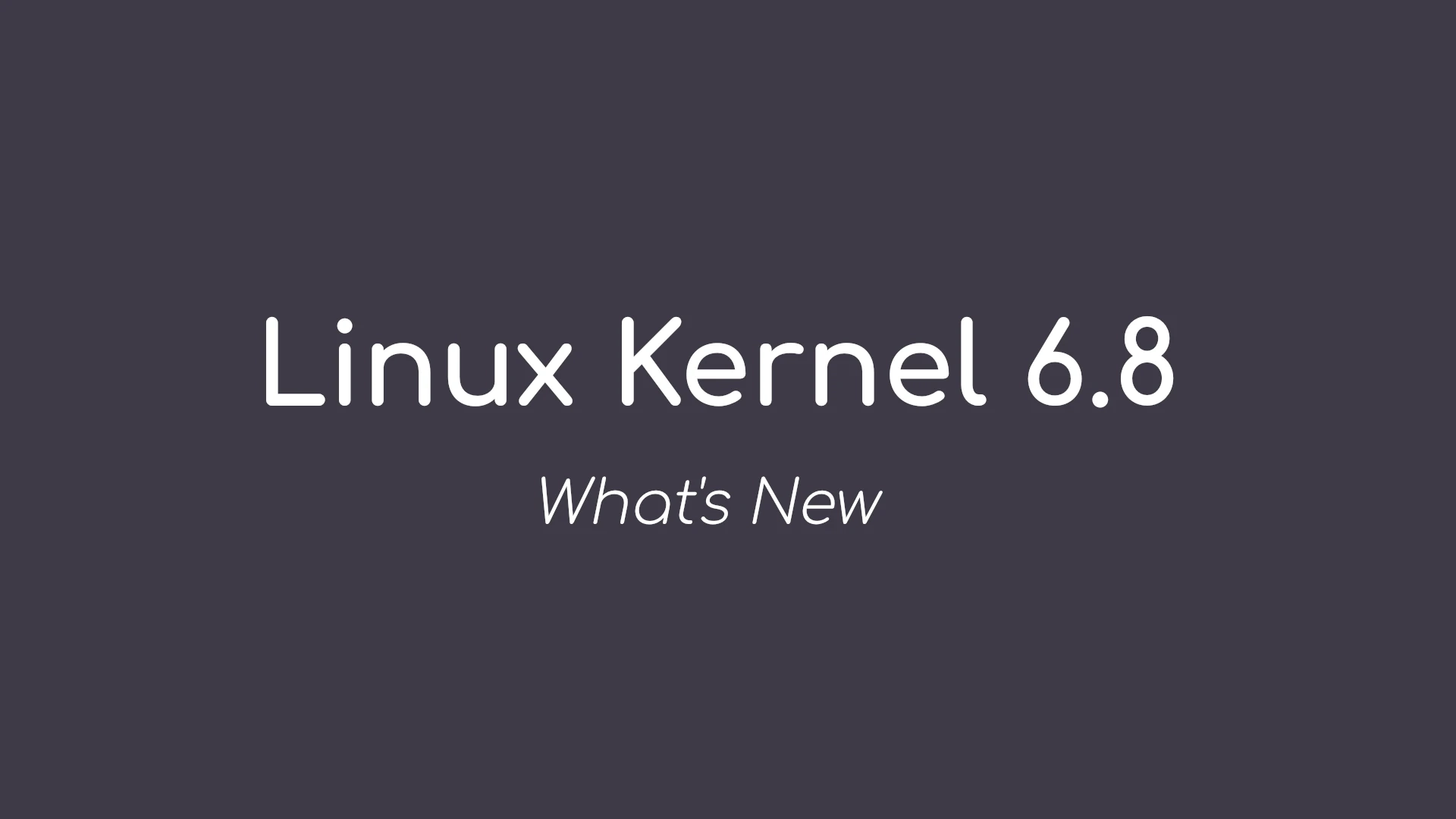If you experience any difficulty in accessing content on our website, please contact us at 1-866-333-8917 or email us at support@chicagovps.net and we will make every effort to assist you.

Linus Torvalds announced today the release and general availability of Linux kernel 6.8, the latest stable version of the Linux kernel that introduces several new features and improvements.
Highlights of Linux kernel 6.8 include LAM (Linear Address Masking) virtualization and guest-first memory support for KVM, a basic online filesystem check and repair mechanism for the Bcachefs file system introduced in Linux kernel 6.7, support for the Broadcom BCM2712 processor in Raspberry Pi 5, AMD ACPI-based Wi-Fi band RFI mitigation feature (WBRF), zswap writeback disabling, fscrypt support for CephFS, a new Intel Xe DRM driver, and a multi-size THP (Transparent Huge Pages) sysfs interface.
Also new is initial Rust support for the LoongArch architecture, a UFFDIO_MOVE uABI operation to allow pages to be moved within a virtual address space while avoiding page allocation and memcpy done by UFFDIO_COPY, the KSM advisor feature to automatically manage the kernel samepage merging subsystem, support for the SMB file system to create block and character special files, and Rust support for creating network PHY drivers.
Linux kernel 6.8 also adjusts the timing of the fscrypt keyring destruction to prepare for Btrfs’s fscrypt support, adds various networking optimizations for better cache efficiency, updates the perf tool with support for data-type profiling, implements SBI-based suspend to RAM support and support for enabling the V extension in kernel code for the RISC-V architecture, and adds host-side support for Intel’s Trust Domain Extensions (TDX).
Furthermore, Linux 6.8 includes additions of CSI-2 and MIPI DisCo for Imaging support to the ACPI device enumeration. This allows MIPI cameras to be recognized through the platform firmware on systems utilizing ACPI, optimizes NUMA balancing and Deadline Scheduler, and provides support for threaded interrupt handlers for the ACPI SCI and the dedicated EC interrupt, particularly on systems where the former is unused. This allows all ACPI code to execute with local interrupts enabled.
There is also provision for Intel Sierra Forest and Grand Ridge intel/cstate PMU, Intel Granite Rapids, Sierra Forest, and Grand Ridge uncore PMU, support for the zswap subsystem to reduce the zswap pool as per memory pressure, LPA2 support for KVM on AArch64 (ARM64), and a system with goal-driven feedback to auto-adjust the quota for the DAMON memory-management facility.
The hardware support has been boosted through the addition of IRQ override quirks for ASUS ExpertBook B1502CGA and ASUS Vivobook E1504GA/E1504GAB laptops, certain TUXEDO InfinityBook Pro laptops and other TongFang GMxXGxx models, support provided for the Acer Predator PHN16-71 laptop, updated driver for Silicom network appliance EC LEDs and GPIOs, enhancements and new platform support for AMD PMC / PMF. In addition, there have been improvements made to Intel PMC / PMT / TPMI / uncore-freq / vsec and support for the new platform.
The WMI bus driver has seen significant improvements, as well as the intel_pstate cpufreq driver which now supports Emerald Rapids in no-HWP mode. Other updates include Thermal fast Sampling Period (_TFP) support for the ACPI thermal zone driver, color management support for the AMDGPU driver specifically for the Steam Deck, a brand new driver for the Adafruit Seesaw gamepad device, and a host of enhancements for Android devices.
We’re also witnessing the launch of new drivers such as those for MPS Multi-phase mp2856/mp2857 controllers, MPS Multi-phase mp5990, Gigabyte AORUS Waterforce AIO coolers, AMS AS6200 temperature sensors, AMD Family 19h Model 8h, Dell Optiplex 7000 Tower Desktop, Ilitek ili2901 touchscreens, and Nintendo NSO controllers (SNES, Genesis, N64). A host of networking and sound-centric devices have also seen upgrades. Peruse the complete list here and here.
The Linux kernel 6.8 will function as a short-lived branch with support for just a few months. It will eventually be taken over by Linux kernel 6.9, the merging window for which has been officially opened by Linus Torvalds. One can anticipate the release of Linux kernel 6.9 around mid-May 2024. In the meantime, Linux kernel 6.8 can be downloaded directly from Linus Torvalds’ git tree or the kernel.org website.
“This all obviously means that tomorrow the merge window for 6.9 opens, and I already have several pull requests pending,” said Linus Torvalds. “Thanks to everybody who sent in early pull requests, you know who you are. But before that excitement commences, please do spend a bit of time with the now boring old status quo and give 6.8 a good test, ok?”
Last updated 2 hours ago
ChicagoVPS is your gateway to unparalleled hosting solutions. Our state-of-the-art datacenters and powerful network ensures lightning-fast speeds and uninterrupted connectivity for your websites and applications. Whether you’re a startup looking for scalable resources or an enterprise in need of enterprise-grade hosting, our range of plans and customizable solutions guarantee a perfect fit. Trust in ChicagoVPS to deliver excellence, combining unmatched reliability and top-tier support.
For Inquiries or to receive a personalized quote, please reach out to us through our contact form here or email us at sales@chicagovps.net.
